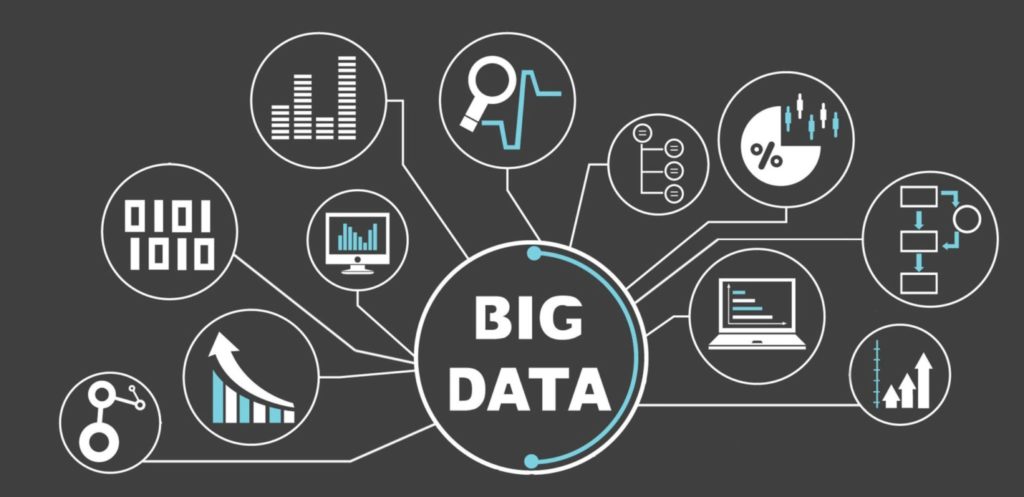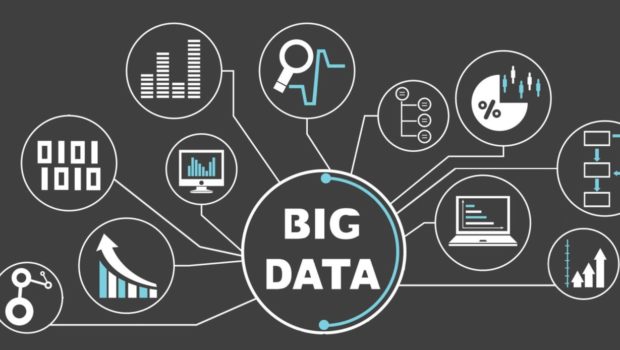How Can Automation & Big Data Take The Lead For Any Business in 2020?
According to Harvard Business Review, 99% of businesses reported that they want to implement big data analytics in the future. 45% of companies all over the world are running at least one of their Big Data workloads in the Cloud. The market of Big Data could rise up to $62.10 billion by 2025 in banking and $67.82 billion in healthcare. According to a McKinsey report, nearly 45% of current paid activities can be automated. Automation is also said to have the potential to generate revenue of at least US$ 900 million in the healthcare industry alone.

Image source: https://ayehu.com/big-data-and-it-automation-a-match-made-in-heaven/
All in all, Big Data and automation are two of the most sought-after technologies for a wide variety of industries out there. From workflow efficiency to budget reduction, these technologies take care of all within an organization. So, let’s check out how Automation and Big Data can help businesses achieve success in 2020.
How Can Big Data Change Businesses in 2020?
Big Data was just a mere concept a few years back. Now, it is a mainstay in the corporate world. And why not? It is estimated that 2020 will witness a total of 40 trillion gigabytes of data. Who has the time, patience or even calibre to extract only useful information from such a huge pile of data? Thus, here comes the role of Big Data. Big Data can help businesses collect, analyse and interpret data almost 10X quickly and easily. Here’s how this technology can take businesses to a whole new level.
Customized marketing strategies
Big Data analytics can help businesses enrich product data, thereby predicting user preferences. Once you know what your target audience is looking for, it will easier for you to create personalized marketing strategies. After all, personalization always helps marketers form a closer bond with their customers.
Here’s how Big Data influences marketing:
- Provides insights into which content is best suited for each stage of a sales cycle
- Increases conversion rates, revenue value and prospect engagement
- Improves customer responsiveness and gains greater customer insights
Let’s say an academic help provider found through Big Data that most students use the keyword ‘assignment help’ to look for their services on Google. So, they can use that keyword in email marketing campaigns, landing pages, social media posts, etc.
Improved security

Image source: https://www.analyticsinsight.net/10-parameters-for-big-data-assessment/
Do you know that we create nearly 2.5 quintillion bytes of data every day? And this growth is accelerating with time. With the increase in the amount of data, the risk of security threats and identity thefts have also increased considerably. Big Data lets businesses use technologies such as machine learning, speech recognition and NPP. These increase safeguards on a wide slew of sensitive data.
Here’s how Big Data helps in avoiding security threats:
- Enables experts to create a predictive model. This model can issue a warning signal as soon as it notices a threat.
- Gives you insight for your business processes and database, thereby keeping hackers at bay through penetration testing
- Helps you foresee the intensity and category of cybersecurity threats
From malware attacks to social engineering attacks, your huge piles of data are constantly at risk of being stolen or hacked. Once lost, it can ruin your company’s reputation forever let along the financial losses. As per a CSO online report, almost 84% of businesses block these attacks using Big Data analytics.
Efficient customer service and retention
Big Data has the capability to study the behavioural and buying patterns of customers. Thus, they serve as effective chatbots for businesses. These chatbots can provide high-end customer services. Also, there isn’t any time, staffing or budget constraints as well.
Here’s how Big Data improves customer service:
- Companies can track negative reviews and respond to customer problems instantly.
- You can also see which channels are used frequently by your target audience.
- It lets you sift through the transactional data and purchase history of your customers faster.
You can conduct polls or surveys to understand the buying preferences of your target audience. Big Data analytics can then help you design customer responsive products according to the data collected from the surveys. Thus, you keep your customers happy, thereby retaining them for many years to come.
These are the top three impacts of Big Data on businesses irrespective of their size and type. From Apple Watches to smart bulbs, every smart product is capable of generating tons of data each second. Using Big Data ensures that your business is able to extract and figure out all the data so that it can be set apart from the competitors.
How Can Automation Change Businesses in 2020?
Remember when we used to send handwritten letters which took a few days to reach its destination? These days it takes only a few seconds to send messages to people all over the world. Automation has similar impacts on businesses. It reduces manual effort and makes the work more efficient and increases productivity. So, here’s how automation can be a boon for your businesses.
Improved organization
You can distribute information or rather tasks seamlessly using automation tools. Let’s say five people are working on a single project. Wouldn’t it be difficult if each of those five people had to look for project details in different systems? Automation lets you organize all the details in one system and make it accessible by everyone.
Here’s how automation reduces chaos in an organization:
- Streamlines inefficient processes and workflows
- Increases transparency in terms of project budgets, status updates, etc.
- Helps companies focus on developing innovative solutions that could address unsolved problems
Automation gets all kinds of monotonous tasks done without the involvement of manual effort. Thus, it paves the way for the management team to focus on more serious tasks such as the evolving needs of customers. It also helps you send daily emails to your customers at the right time automatically.
Increased productivity

Image source: https://postpressmag.com/articles/
Earlier, employees had to do most of the tasks manually. From crafting emails to responding to customer’s queries, the workers had to get these monotonous tasks on their own. There wasn’t any time to focus on increasing the productivity of an organization. But, things took a different course with the advent of automation.
Here’s how automation increases productivity:
- Automates preventive maintenance thereby making sure the chore gets done
- Integrates Artificial Intelligence that automates a wide slew of mindless processes
- Predicts the latest consumer trends and stock market trends using the Internet of Things
Productivity is now a bigger concern with the increase in a company’s technology demands. The right use of automation tools can help your company increase its productivity and effectiveness. You can implement strategies to enhance productivity rather than doing repetitious tasks.
Reduces operational costs
Businesses often face pressure to increase their profitability levels. The best way to do so is by reducing operational costs. The operational expenses of any organization usually double every 14 years. Automation tools can take care of your time-consuming tasks. From processing sales orders to creating invoices for customers, automation covers all these monotonous activities.
Automation reduces operational costs associated with:
- Scheduling outbound payments
- Tracking shipments and managing logistics
- Collecting and verifying vendor invoices
Some companies outsource services to cut down their operational costs. But, that also brings a lot of downsides along with it. Poor visibility and lack of control are some of them. Automation, on the contrary, lets you have complete control on the tasks within your organization.
Wrapping Up
Big Data and automation have their own individual powers and capabilities. Big Data, for example, can extract millions of data within a few seconds. Automation, on the other hand, increases productivity and reduces the requirement of manual effort. Bring them together and they can take your business to a whole new level. From operational costs to production efficiency, these technologies take care of all these factors in an organization. The question is: Is your business ready to invest in these advanced technologies? Think about it.
Author Bio:
Olaila lee is a web developer at a reputed firm in the USA. She also offers assignment help at MyAssignmenthelp.com.Henry loves to bake cookies in her free time.















